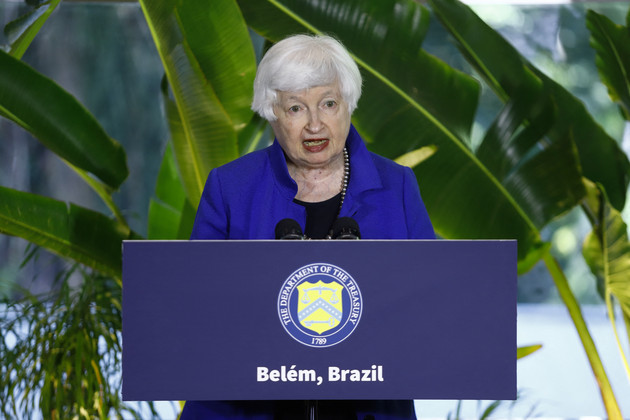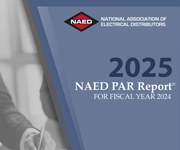U.S Treasury Secretary Janet Yellen told an international audience at the G20 Finance Leaders Meeting in Brazil that the world will need $3 trillion annually to meet climate and clean energy goals by 2050. Yellen believes the total investment over the next 26 years would need to reach $78 trillion worldwide.
That number is higher than the current annual financing, and would need significant increases in spending by all countries, including the United States. Yellen describes the investment in clean energy as the “biggest economic opportunity in the 21st century”. In her speech, Yellen called on multilateral development banks to increase their lending to clean energy projects.
Here is a portion of the speech Yellen gave at the Meeting:
“Climate change poses a daily and existential threat to individuals, communities, and countries. It harms human health, damages homes and businesses, and strains government budgets. It poses risks across sectors of our economies, from agriculture to infrastructure. And the harsh reality is that the people and countries with fewer resources to prepare and respond often must bear even greater costs.
Put simply, neglecting to address climate change and the loss of nature and biodiversity is not just bad environmental policy. It is bad economic policy.
The transition will require no less than $3 trillion in new capital from many sources each year between now and 2050. This can be leveraged to support pathways to sustainable and inclusive growth, including for countries that have historically received less investment.
So the Biden-Harris Administration has made supporting the transition to net zero a top priority, and the Treasury Department is playing a key role. At home, we are implementing the Inflation Reduction Act, the most significant climate legislation in our nation’s history. It is driving hundreds of billions of dollars of investments in the clean energy technologies and industries that will propel us toward our climate goals and fuel our economic growth. We launched the Net-Zero Principles for Financing and Investment to provide guidance to U.S. financial institutions pursuing net-zero commitments. And we and other federal agencies together put forward Principles for Responsible Participation in Voluntary Carbon Markets.
Our ambitions at home are matched by our ambitions abroad. We know that we can only achieve our climate and economic goals—from reducing global emissions to adapting and building resilience, from strengthening markets to bolstering supply chains—if we also lead efforts far beyond our borders. So let me talk about the tools we’re using to achieve these goals, starting with strengthening relationships with our allies and partners.
will end by emphasizing a third key aspect of our approach: our commitment to harness the power of markets to advance the climate transition and to capitalize on massive economic opportunities.
As we implement the IRA and see a boom in private sector investment in clean energy industries across the United States, American companies are also pursuing global opportunities. Here in Brazil, Amazon and Microsoft are making significant investments in renewable energy such as solar and wind and supporting forest restoration, among many other examples across the region.
We are focused on supporting private sector engagement through strengthening our relationships with allies and partners, as the new Fazenda-Treasury Partnership prioritizes crowding in more private investment to finance climate transitions.
Ultimately, through strengthening relationships, making the international financial architecture work better for countries, and harnessing the power of markets, we’re making progress toward tackling climate change, the loss of nature and biodiversity, and related challenges. We are continuously working to mitigate risks to our economy and capitalizing on new economic opportunities. Here in Belém, as we look toward COP30, we celebrate the progress we have made and renew our commitment to doing all we can in the months and years ahead.
This work is complex and challenging. But I come away from today’s engagements with the belief that we collectively have the ambition, willingness to collaborate, and are developing the tools to secure a better future for our planet and for all our people.”






